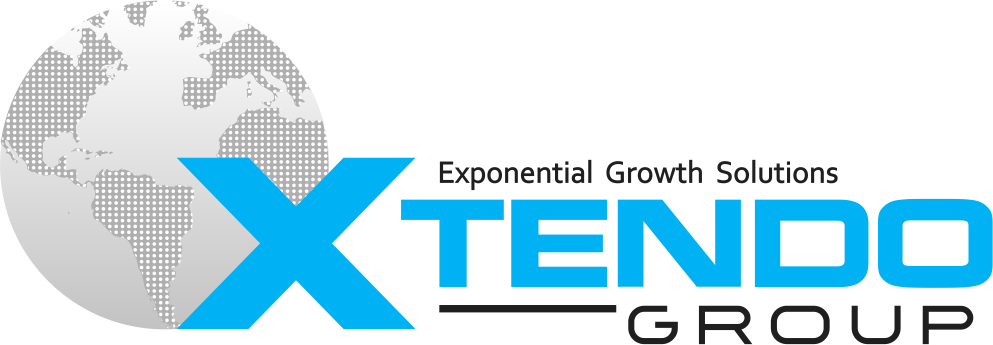By: Josefina Barbero, Human Capital Lead at Xtendo Group BPO
In the digital era, Artificial Intelligence has ceased to be a simple tool to become a strategic pillar in talent management. Companies are beginning to recognize the value that AI brings to all aspects of the employee lifecycle, from recruitment to development and retention. In this blog, we explore how AI is transforming talent management, driving organizations to become more agile, inclusive and prepared for the challenges of the future.
1. Generative AI as a Driver of Talent Transformation in Enterprises.
AI is no longer a simple automation tool, but a transformation engine that redefines the way talent is managed and developed in organizations. From optimizing processes to personalizing career development, AI creates new opportunities for employees to maximize their potential.
With AI taking over routine tasks, the employee role is evolving into more strategic and creative functions. Professionals can now spend more time innovating, solving complex problems and contributing to the long-term growth of the company, supported by insights and data-driven decisions provided by AI.
Freeing employees from these tasks allows them to focus on projects that require human skills such as critical thinking and innovation. It helps us make more informed, data-driven decisions by having the ability to analyze large volumes of information and provide valuable insights.
In the area of Training and Development, AI can help us create customized training programs capable of adapting to the needs and different learning styles of each employee.
Recently, Microsoft and LinkedIn launched a study on the state of artificial intelligence in companies titled “AI in the workplace is already here” and according to this study, AI skills are being valued more than experience in the position. Could it be true that we will not be replaced directly by AI but by someone who knows how to use it? In a talk for the podcast “Voices of Change ” between Roberto Icasuriaga Gatti, General Manager of Modern Work, Security and Business Applications at Microsoft and Martín Barbero, CEO and Founder of Xtendo Group. We go in depth about this powerful statement.
2. AI and Employee Experience: Improving Satisfaction and Retention
AI is not only revolutionizing the way tasks are performed, but it is taking a crucial role in improving the employee experience within the organization. By using AI to analyze behavioral patterns and feedback in real time, companies can quickly identify areas of dissatisfaction and act proactively to improve the work environment.
AI makes it possible to generate more effective retention strategies by predicting which employees are most at risk of leaving. By analyzing factors such as job satisfaction, participation in development programs and interactions with supervisors, leaders can design customized interventions to retain their top talent.
On the other hand, AI enables improved internal communication and employee well-being. AI-based tools, such as chatbots and virtual assistants, can respond immediately to employee queries, facilitating access to information and reducing administrative burden. This not only saves time, but also contributes to a more efficient and pleasant working environment.
3. Use cases of AI in Talent Management
AI can be useful in all Human Management processes, but let’s give some examples:
For performance management there are AI tools that can help us monitor in real time, give immediate feedback and help managers identify areas of improvement and development opportunities for their employees.
In Recruitment and Selection there are AI algorithms capable of analyzing resumes, screening and evaluating candidates faster and more objectively, eliminating unconscious biases and ensuring that the best candidates move forward in the process.
AI not only helps find the right talent, but also plays a crucial role in their development within the organization. By analyzing employee performance, skills and aspirations, AI can recommend opportunities for career development and internal mobility. This not only improves employee satisfaction and retention, but also ensures that the company is cultivating future leaders and maximizing the potential of its workforce.
4. Fostering Creativity and Innovation
Far from replacing human creativity, AI amplifies it, helping employees explore new ideas and creative approaches to different tasks such as product design or content creation.
In turn, it can act as a collaborator, helping employees explore new solutions and optimize their creative processes. Rather than replacing human creativity, AI can amplify it, giving a starting point or new perspectives that employees can develop.
5. The future of work with AI
HR departments are in a strategic position to lead the integration of AI into organizations. Beyond the technical implementation, HR has a crucial responsibility to ensure that AI is integrated into the organization. HR has a crucial responsibility to ensure that the use of AI empowers employees rather than dehumanizes Talent Management. This means using AI to automate administrative processes and provide accurate insights into employee performance and development, while maintaining a people-centric focus. HR leaders must ensure that AI is used to enhance the work experience, promoting a culture of support, inclusion and continuous growth.
As AI continues to evolve, the future of work will change significantly. Roles and responsibilities within companies will be redefined with a more pronounced focus on skills that AI cannot replicate, such as creativity, empathy and leadership. It is key that organizations begin to prepare their employees for this transition, helping them thrive in a work environment where AI and human talent coexist harmoniously.
Learn more about the impact of AI on employees and companies from the experience of Roberto Icasuriaga Gatti, its applications, uses and how it helps manage day-to-day life in the office.
“AI is not just a technology; it is a new way to amplify human creativity and intelligence” Satya Nadella, CEO of Microsoft.






